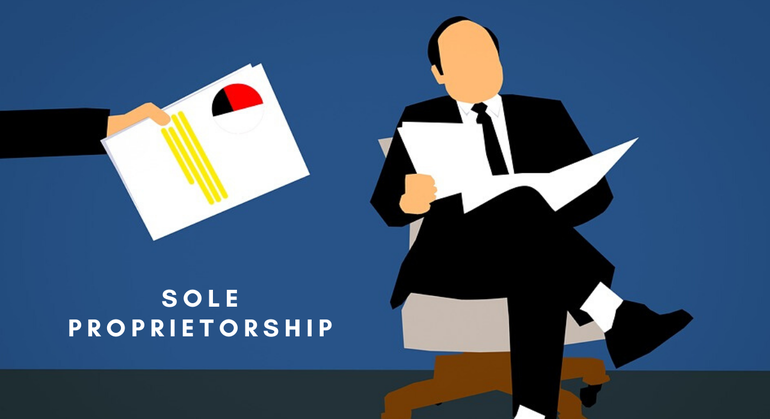

Sole Proprietorship
Sole Proprietorship is a business enterprise that is controlled and owned by one person who possesses the whole authority & responsibility with respect to the business. He can hire employees and pay them salaries, but legitimate responsibility for the obligations of the business is on the sole proprietor. The actual implication of such an arrangement is that an owner alone gets the entire profit after paying costs but he is also personally liable. This is so as a proprietorship is not a distinct entity unto itself, rather the business and its owner are clubbed together.
The sole proprietorship is a popular business form due to its ease of setup, simplicity, and nominal cost. A sole proprietor requires only to register her or his name and secure local licenses, and the sole proprietor is ready for business. A distinct drawback, however, is that the owner of a sole proprietorship remains personally liable for all the business's debts. So, if a sole proprietor business runs into financial problems, creditors can bring lawsuits against the business owner. If such suits are successful, the owner will have to pay the business debts with her or his own money.
Characteristics of Sole Proprietorship
- Single Ownership: It is a kind of business unit, in which a single person owns the whole business, i.e. all the property and assets belong to the proprietor. Therefore, he bears all the risk associated with the enterprise. Thus, the business ends up at his will or on his demise.
- No sharing of Profit and Loss: Whatever income generated from the sole proprietorship business, it belongs to the sole proprietor only. Accordingly, he alone bears all the losses incurred by the firm. There is no sharing of business losses and profits.
- One man’s capital: The capital needed to start the business or to continue operations, is brought and arranged to the business by the sole proprietor only, either from his personal resources or by borrowing, i.e. from financial institutions, banks, friends, relatives, etc.
- Unlimited Liability: This is one of the major drawbacks of sole proprietorship business, i.e. the liabilities are unlimited. In the event of loss, the private assets of the proprietor along with the business assets can be utilized to discharge the dues of business.
- Less Legal Formalities: The legal requirements for operation, formation, and closure of a sole tradership business is almost nil, even it does not need registration. However, for the purpose of business, it can be registered with local self-government, and acquire a certificate of registration.
- One man Control: As only one person is in charge of all the activities, he has full-fledged control over it. Therefore, the sole proprietor takes all the decisions and executes it, in the manner he wants it to be.
Documents Required
The documents required for sole proprietorship’s business are as follows :
- Utility Bill of the business place
- KYC documents of the Bank
- A license issued by the Shops and Establishment Act
- Income Tax Returns of the Proprietor
Any two of the documents can be submitted for the Bank Account opening along with the Address proof and identity of the proprietor.
Legal Compliances for a Sole Proprietorship’s Business
The legal compliances that are required to meet for running the business of sole proprietorship are as follows :
- Applying for PAN. If you already have one this step is not required.
- The next step is to name the business.
- There is no formal registration required, but the next step is to open a bank account in the name of the business.
- You can also register as a Small and Medium Enterprise (SME) under MSME Act, though not mandatory, it is beneficial to be registered under the same.
- You can also register for GST if your turnover exceeds Rs 20 lakh.
- One can also get a Shop and Establishment registration done.
Compliances required for Sole Proprietor
The sole proprietor needs to fulfill the compliances which are as follows :
- As a sole proprietor, you must file an Income Tax Return annually.
- Also, you need to file your GST Return if you are registered under GST.
- A sole proprietor should also deduct TDS and file TDS return if liable for Tax Audit.
Sole Proprietorship Examples
Sole proprietorship examples include the following :
- Freelancers
- Consultants
- Bookkeepers
- Virtual assistants
- Home-based business owners



